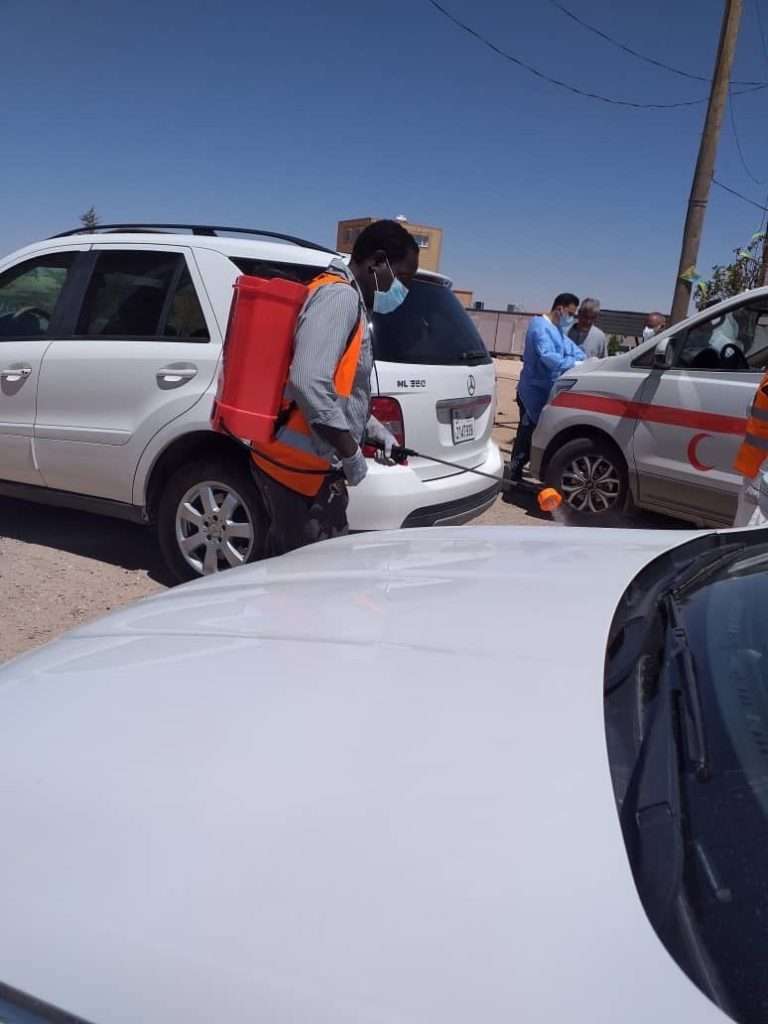COVID-19 has impacted the Libyan economy, exacerbating the negative effects of years of conflict and instability; it has also impacted vulnerable groups such as migrant workers, at risk of poverty and less resilient to economic shocks.
The first lockdown led to a number of non-essential businesses temporarily closing in March 2020, leaving migrant workers without a job and wanting to return home.
A subsequent international travel ban affected the border town of Wazen, situated between Tunisia and Libya, where 70 Algerian and 150 Tunisian migrant workers became stuck. They were mostly daily wage workers and quickly ran out of money.
The migrant workers were living in abandoned buildings and sleeping outside. There was a lack of hygienic facilities and social distancing was challenging, increasing the likelihood of COVID-19 transmission. Wazen had limited medical facilities which led security officers at the border and local community networks to highlight their concerns.
Nalut Social Peace Partnership was already implementing a COVID-19 public awareness campaign, focused on encouraging people to stay at home to protect their health. When they heard about the migrant workers at the border, they wanted to work with the community to resolve the situation. They collaborated with the Head of the Displaced Persons Office in Nalut, the Red Crescent and the local branch of the Boy Scouts to source donations. The Nalut Municipality and the Libyan COVID-19 Response Committee also provided funding.
A volunteer explained: “The situation was very bad. We felt it was our responsibility to help because the migrant workers do not have any other form of social support, and with the ongoing pandemic we were worried that the virus would spread among them. We were able to provide humanitarian assistance until they could cross the border into Tunisia and continue their journey home.”
The Nalut Social Peace Partnership provided the migrant workers with masks, hand sanitiser, gloves, food and materials to build shelters. They also worked alongside the local health authority, who sent medical staff to disinfect the shelters and the crossing point facilities. They also provided training to migrant workers and security officers on how to prevent the spread of COVID-19 in the area.
One member of the Nalut Social Peace Partnership said: “Supporting the migrant workers felt like a logical step in our campaign, to protect everyone from COVID-19 by helping the most vulnerable. It was a significant project because of the coordination with both the local authorities and civil society. We also worked with the media office of the border crossing to ensure that information and updates were clearly shared.”
Members of a Social Peace Partnership include senior representatives from the local authority and leaders from civil society, community/elders, business, individuals/groups responsible for providing security, local radio, social media influencers and local residents. One of the functions of a Social Peace Partnership is to engage with different community groups, helping to bolster relationships and strengthen the social fabric of the community.
For more on Social Peace Partnerships in Libya click here

